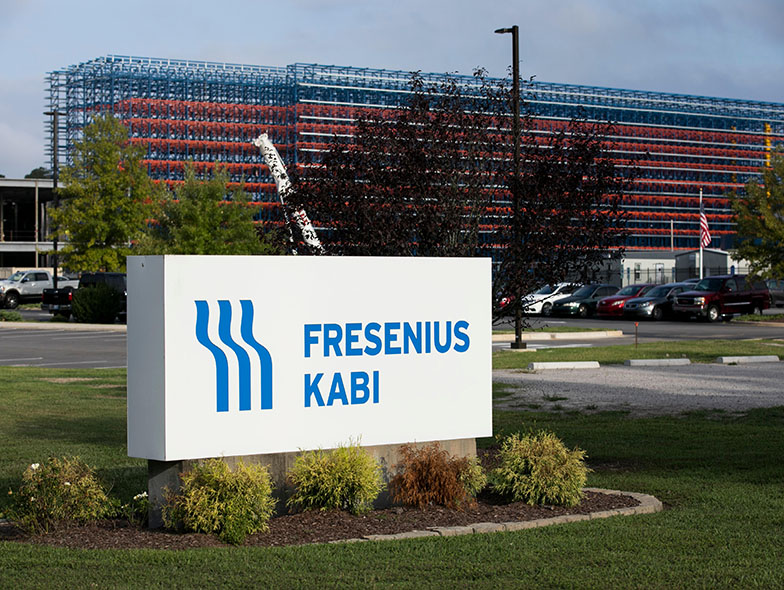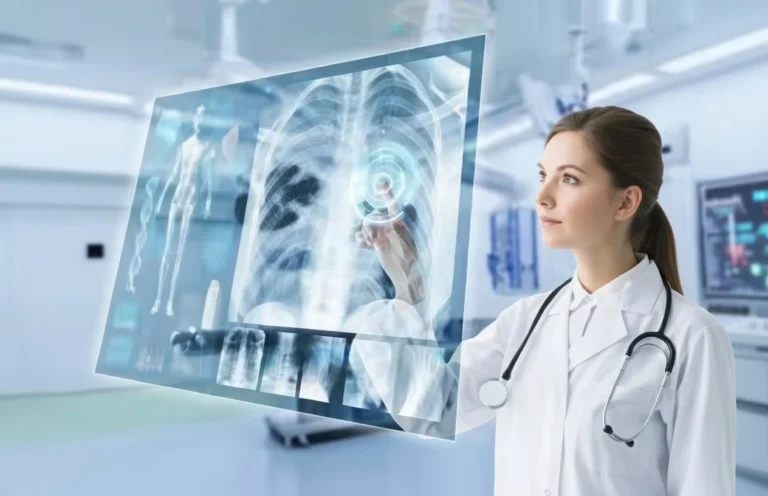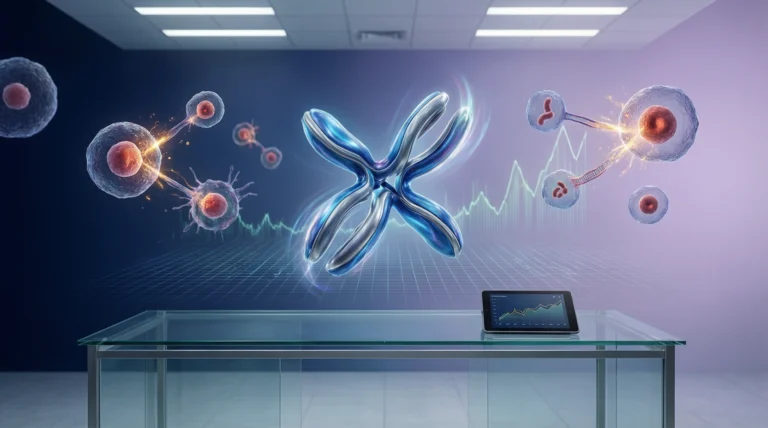
Fresenius Leads EASYGEN Consortium to Decentralize CAR-T Cell Therapy and Improve Patient Access Across Europe
The global healthcare company Fresenius has announced the launch of a major new initiative aimed at reshaping the future of cell and gene therapy (CGT) manufacturing in Europe. The newly formed EASYGEN (Easy Workflow Integration for Gene Therapy) consortium brings together a powerful network of industry leaders, academic institutions, and clinical partners to tackle one of the biggest bottlenecks in modern oncology treatment: the complex and resource-intensive production of CAR-T cell therapies.
With an emphasis on decentralization, automation, and hospital-based manufacturing, the consortium seeks to dramatically shorten production timelines, reduce costs, and most importantly, expand patient access to life-saving treatments. The project is being funded as part of a €8 million grant from the European Union through the Innovative Health Initiative (IHI), highlighting the strategic importance of CGT infrastructure for the region’s healthcare systems.
Tackling the CAR-T Manufacturing Bottleneck
CAR-T (chimeric antigen receptor T-cell) therapy has been hailed as a paradigm shift in cancer treatment. By genetically modifying a patient’s own T cells to recognize and attack malignant cells, CAR-T has delivered unprecedented remission rates in certain blood cancers, particularly in patients who have exhausted standard therapies.
Yet despite its promise, the manufacturing process remains one of the biggest hurdles. Producing CAR-T cells is a highly individualized, multi-step procedure:
- Leukapheresis – Patient’s T cells are collected.
- Genetic Modification – T cells are engineered to express CAR proteins that target tumor antigens.
- Expansion & Cultivation – Modified T cells are grown in bioreactors until a sufficient dose is achieved.
- Quality Control – Rigorous testing ensures safety and potency.
- Reinfusion – The therapy is delivered back to the patient.
This entire cycle often takes three to five weeks, with cells typically shipped to centralized, specialized manufacturing plants located far from hospitals. During this time, some patients with aggressive cancers may experience disease progression, making them ineligible to receive treatment.
Dr. Christian Hauer, President MedTech at Fresenius Kabi, explained the urgency behind the EASYGEN project:
“This project contributes to expanding our MedTech platform, making it an important step on our path to #FutureFresenius. The aim is not only to develop cutting-edge medical technologies, but also to make them available quickly, safely, and close to the patient. In this way, we are actively working to shape the healthcare of tomorrow.”
The Vision Behind EASYGEN
The EASYGEN consortium seeks to fundamentally reimagine the CAR-T supply chain. Instead of depending solely on centralized production hubs, the project aims to create a modular, hospital-based manufacturing platform. This would allow individual medical centers to produce CAR-T cells onsite, within just a few days.

Prof. Dr. med. Ralf Kuhlen, Chief Medical Officer at Fresenius, emphasized the potential impact:
“EASYGEN brings together physicians, researchers, and partner institutions from across Europe with the goal of collaboratively advancing innovative, personalized therapies such as CAR-T cells for cancer treatment. Automation can help reduce production complexity of these therapies, with the aim of making it easier to scale these life-saving treatments and improve patient access.”
By introducing automation, digital workflow integration, and standardized protocols, the consortium aims to streamline cell therapy production so that it can be performed reliably in hospital clean rooms without the need for massive centralized infrastructure.
The Patient Access Gap in Europe
Although Fresenius CAR-T therapy has been approved for multiple blood cancer indications, access remains strikingly limited across Europe. The disparity in treatment rates illustrates both geographical and systemic inequities:
- Across five European countries, the average treatment rate for CAR-T in diffuse large B-cell lymphoma (LBCL) patients is below 20%.
- In France, roughly 30% of eligible patients receive CAR-T therapy.
- In Italy, the rate drops dramatically to just 11%.
For patients, this gap means that even if they are clinically eligible, logistical challenges, long wait times, and limited treatment slots can prevent them from ever receiving therapy. EASYGEN directly addresses this bottleneck by proposing a distributed, scalable manufacturing model.
Fresenius’ Existing Role in Cell and Gene Therapy
Fresenius is not new to the field of CGT. Through Fresenius Kabi, the company already develops and markets technologies that are widely used in the preparation of cellular therapies. Two key systems include:
- Lovo – An automated cell processing device designed for washing, concentration, and purification of cellular products.
- Cue – A benchtop system for point-of-care processing of cellular therapies.
In addition, Fresenius’ hospital divisions have been early adopters of CAR-T therapy:
- Helios Hospital Berlin-Buch (Germany) has offered CAR-T as a standard treatment since 2019 for patients with relapsed cancers. The hospital also runs clinical trials in the field of cellular immunotherapy.
- Quirónsalud (Spain) has built specialized oncology units with CAR-T as part of its advanced hematology and oncology treatment portfolio.
This existing infrastructure and clinical expertise positions Fresenius as a natural coordinator for a project like EASYGEN.
Academic and Research Collaboratio
The consortium is co-led academically by the Fraunhofer Institute for Cell Therapy and Immunology (IZI) in Leipzig, Germany, one of Europe’s leading immunotherapy research centers. Key scientific leaders involved include:
- Prof. Dr. Michael Hudecek – A recognized authority in CAR-T cell engineering.
- Prof. Dr. Ulrike Köhl – An expert in translational immunotherapies and regulatory aspects of cell therapy manufacturing.
The participation of Fraunhofer ensures that EASYGEN is scientifically grounded while addressing regulatory challenges such as Good Manufacturing Practice (GMP) compliance, which is critical for decentralized production.
Consortium Members: A Pan-European Alliance
The scope of EASYGEN reflects its ambition: 18 organizations across 8 countries are collaborating in this public-private partnership.
Industry & Clinical Leaders
- Fresenius (Coordinator, Germany)
- Helios Hospital Berlin-Buch (Germany)
- Quirónsalud (Spain)
- Fenwal Inc. (USA)
- Cellix Ltd. (Ireland)
- Charles River (Germany)
- Pro-Liance Global Solutions (Germany)
- TQ Therapeutics (Germany)
- Philips Electronics Nederland B.V. (Netherlands)
Academic & Research Institutions
- Fraunhofer IESE (Germany)
- Fraunhofer IZI (Germany)
- Helmholtz-Zentrum Dresden-Rossendorf (Germany)
- Technical University of Denmark (Denmark)
- Frankfurt School of Finance & Management (Germany)
- European Society for Blood & Marrow Transplantation (Netherlands)
- Bar-Ilan University (Israel)
- University of Glasgow (UK)
- University of Navarra (Spain)
This broad coalition ensures that EASYGEN integrates perspectives from Fresenius science, medicine, industry, and economics, aligning both research ambitions and real-world implementation needs.
Broader Impact: Decentralization as a Healthcare Strategy
If successful, the EASYGEN model could serve as a blueprint for other advanced therapies, not just CAR-T. Gene editing, stem cell therapies, and regenerative medicine products often share similar bottlenecks in manufacturing and distribution.
Decentralized, modular platforms would allow hospitals across Europe to:
- Reduce dependency on centralized manufacturing plants.
- Accelerate turnaround times, giving critically ill patients access to therapies before disease progression.
- Lower costs by minimizing shipping, logistics, and centralized facility overhead.
- Democratize access, making cutting-edge therapies available beyond a small number of specialized centers.
This could also have strategic implications for Europe’s healthcare sovereignty, reducing reliance on overseas manufacturing capacity and securing supply chains for high-priority treatments.
The success of EASYGEN will depend on overcoming multiple challenges, including:
- Technical feasibility – Ensuring hospital-based production meets regulatory and quality standards.
- Automation reliability – Developing user-friendly systems that can be operated safely by hospital staff.
- Scalability – Proving the model works beyond pilot programs and can expand across multiple hospitals and healthcare systems.
- Economic sustainability – Demonstrating cost-effectiveness compared to centralized manufacturing.
Nevertheless, the initiative has strong momentum, supported by EU funding, leading academic expertise, and Fresenius’ established presence in both medtech and clinical oncology.
For patients with cancers such as diffuse large B-cell lymphoma, the impact could be life-changing. A therapy that currently takes weeks to manufacture and reach the bedside could one day be available in a matter of days – potentially improving survival rates and quality of life for thousands.
The launch of the EASYGEN consortium represents a significant step forward in the evolution of personalized medicine in Europe. By uniting industry, academia, and healthcare providers, the project embodies the collaborative spirit necessary to overcome the technical and logistical barriers that have limited CAR-T’s reach.
With Fresenius at the helm, and with the support of leading European research institutions, EASYGEN has the potential to transform cell therapy from a niche innovation into a broadly accessible standard of care.
As Dr. Hauer noted, this initiative is not only about creating new technologies but ensuring they are delivered quickly, safely, and directly to the patients who need them most. In doing so, EASYGEN could help define the future of cancer treatment – and of decentralized healthcare delivery across Europe.




